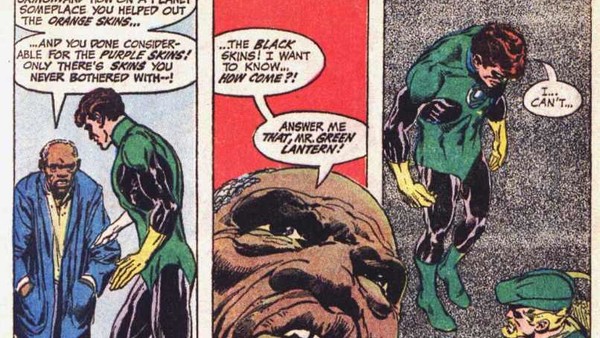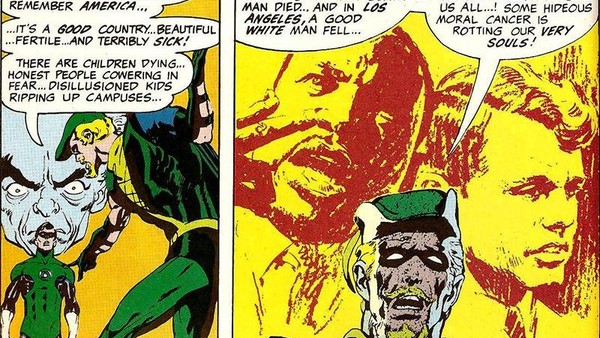Is This The Most Important Comic Of All Time?
2. The Silent Majority

Despite this being Green Lantern's book, the character is scolded repeatedly by Green Arrow for what he considers to be his establishment background. Hal cedes authority to a group of intergalactic beings and seems vastly more concerned with the struggles of the galaxy than that of his own planet, a fact a passerby in O'Neil's series admonishes him for during an early appearance.
Hal came to represent everything old DC failed to address in their comics, but the journey isn't wasted on him. Over the course of O'Neil and Adams' comic, the Hal of old (a symbol of obedience, authority, and deference) morphed into a rebellious man of conviction who'd rebel against his leaders, the Guardians, more times than not.
Without Green Lantern/Green Arrow, that character doesn't exist. He is, for most of the O'Neil-Adams series, an analogue too and a criticism of the resurgent deference that brought in Nixon's presidency, one obsessed with 'law and order' and weary of the radical changes the sixties brought. By the end of the comic that's no longer the case, and in shaping perceptions of both Hal and Ollie in this series, but one aspect of the book's importance is made apparent.

That isn't all though. To read Green Lantern/Green Arrow is to experience a comic uncompromising in its dedication to divest from a universe unconcerned by (to quote the Marvel tagline) "The World Outside Your Window". But where Marvel played things safe when it came to their allegories (the original incarnation of the X-Men, for instance, found inspiration in the Civil Rights Movement and yet featured not a single African American), O'Neil and Adams' comic confronted these moments head on (albeit in a sometimes dated fashion).
At times, GL/GA reads like an untamed response to a period of immense discontent. The above panel, for instance, references the deaths of Martin Luther King Jr. and Robert F. Kennedy, both of whom were assassinated in 1968 - a year many then came to see as the one that marked the 'death' of the sixties as they then existed. There's a clear emotional current to the comic, and while it can seem almost chaotic in its most exasperated moments, Green Lantern/Green Arrow conveys the anxieties of the period in a genuine way. That in itself lends the comic a unique historical importance, but in breaking genre boundaries too, the book's salience is nigh-impossible to overstate.